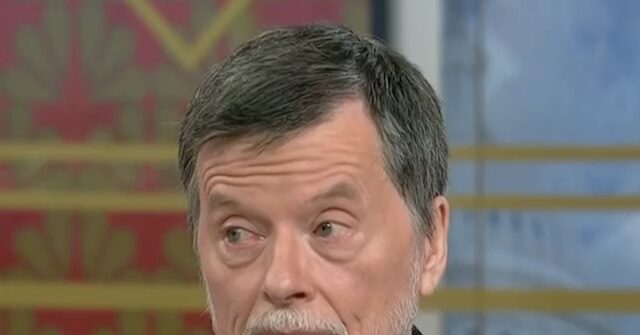Filmmaker Ken Burns appeared on MSNBC’s “Deadline” to discuss the importance of the upcoming election and the responsibility that comes with it, particularly regarding the election of Vice President Kamala Harris. Burns articulated the idea that, as a nation that positions itself as “the last best hope of Earth,” there is a fundamental duty to uphold democratic values and principles. He emphasized that the weight of history rests on their shoulders, drawing parallels with historical figures like Abraham Lincoln, whose speeches reflected the imperative of confronting challenges with moral resolve. Burns pointed out significant moments from Lincoln’s legacy that highlight the necessity of engaging with democracy actively and courageously, underscoring the ongoing nature of this civic duty in the context of modern politics.
In his commentary, Burns stressed the imperative for citizens to evaluate their stance on democracy and the virtues of leadership. He posed rhetorical questions that challenge individuals to reflect on their support for democratic ideals and the characters that embody them in contemporary politics. He elaborated on the significance of aligning with leaders who exemplify virtuous qualities and who are committed to the principles that underpin the United States’ democratic experiment. With this analysis, Burns beckons the audience to consider the broader implications of their electoral choices on the future of governance and the nation’s moral compass.
Burns then turned his attention to the concept of collective responsibility. He asserted that it is crucial for voters to distinguish between being for positive values rather than merely opposing negative ones. This represents a more proactive approach in political engagement, one that aligns with the ideal of improving and perfecting the union. In a moment of urgency, he advocated for a rejection of divisive politics and a movement toward unity based on shared truths and ideals. Through this lens, Burns sought to inspire a shift towards a more constructive political discourse, which he views as essential for the health of democracy.
The conversation on MSNBC emphasized a historical context where past decisions and actions have shaped the current political landscape, and Burns underscored the need to learn from history. He invoked Lincoln’s recognition of the inescapability of history, highlighting that the present moment is a continuation of the societal struggles that define the American experience. This acknowledgment serves as a reminder that the trials faced today are not new; rather, they are part of a longer narrative. Burns’ reflections invite a deeper understanding of how contemporary challenges can find resonance in historical struggles, urging a thoughtful approach to political engagement that honors the sacrifices of past generations.
Eddie Glaude, a political commentator alongside Burns, contributed to the conversation by asserting that figures like Donald Trump represent a regression to outdated ideals. This reflection acknowledges that the political landscape is influenced by earlier historical moments that echo in current events. By framing Trump as “an echo of something old,” Glaude highlights the cyclical nature of political discourse and the ideas that resurface over time. This perspective reinforces the importance of recognizing these patterns in order to effectively address them and to forge a path forward that aligns more closely with the democratic ideals that Burns champions.
Ultimately, Burns concluded with a clarion call for civic responsibility, urging Americans to engage thoughtfully in the political process. He echoed the sentiment that the nation must take decisive action to uphold its democratic principles, particularly in the face of adversity. By advocating for a principled stance that prioritizes unity, honesty, and moral leadership, Burns is not only encouraging voters to make informed choices but also to actively participate in the ongoing endeavor of perfecting the union. This vision of democracy as a collective responsibility invites every citizen to play a role in shaping a future that honors the values upon which the nation was founded.

